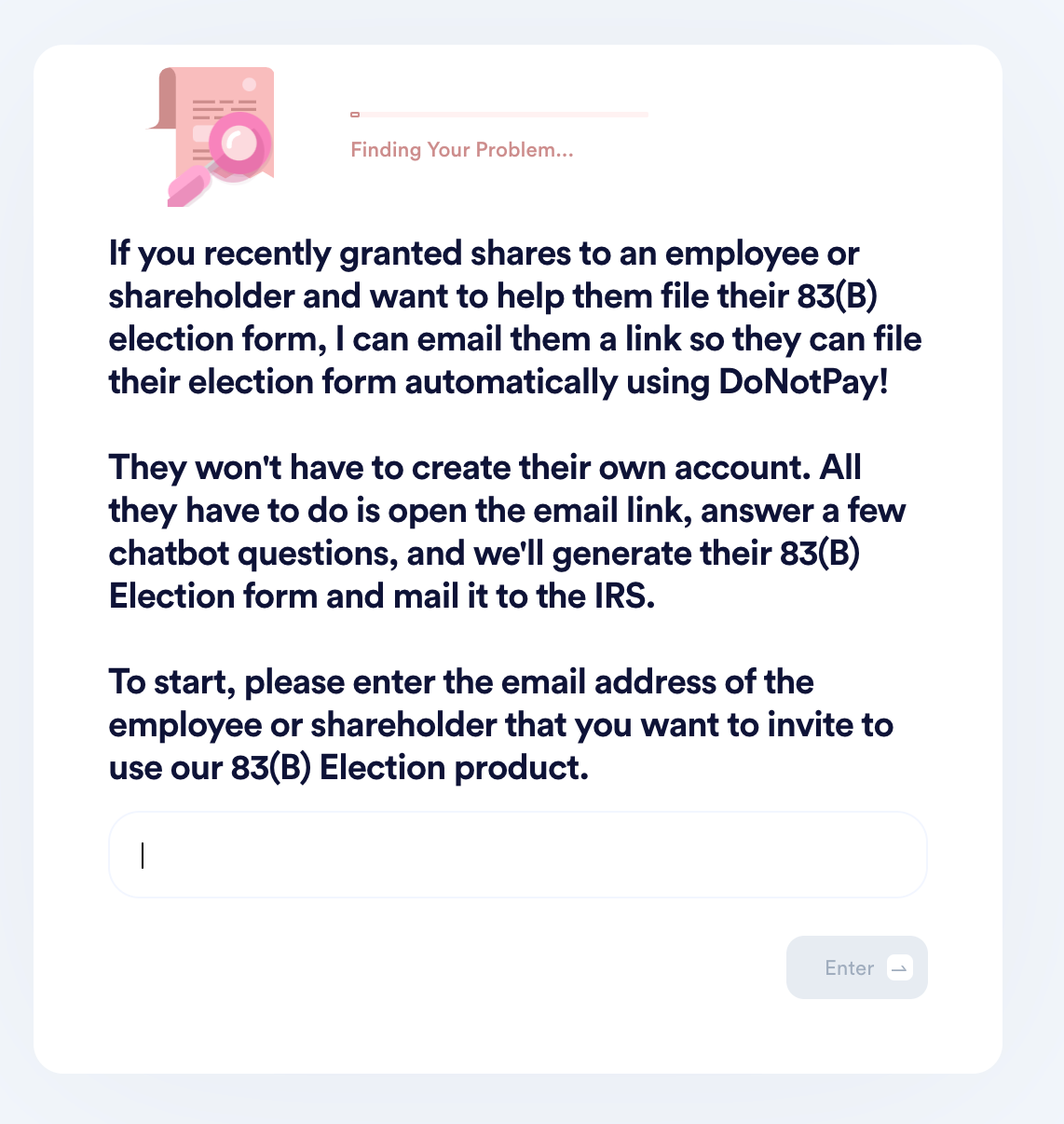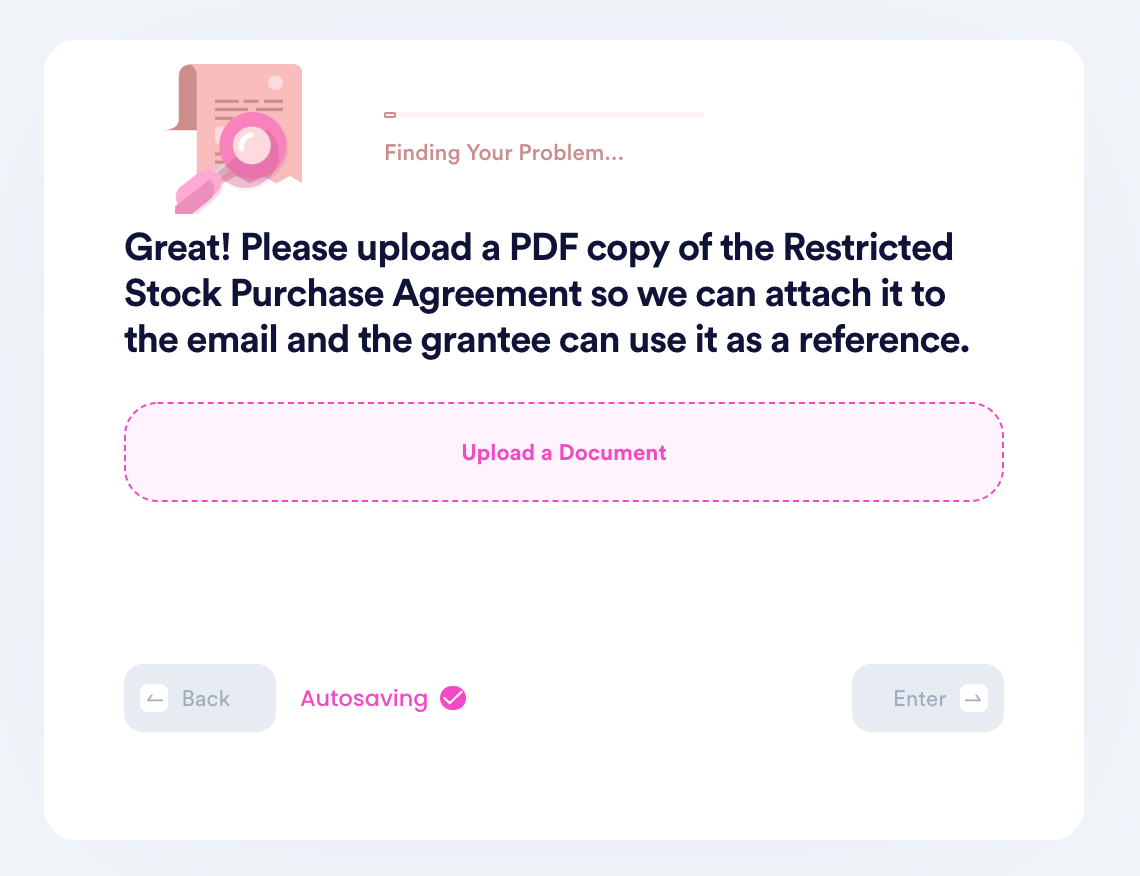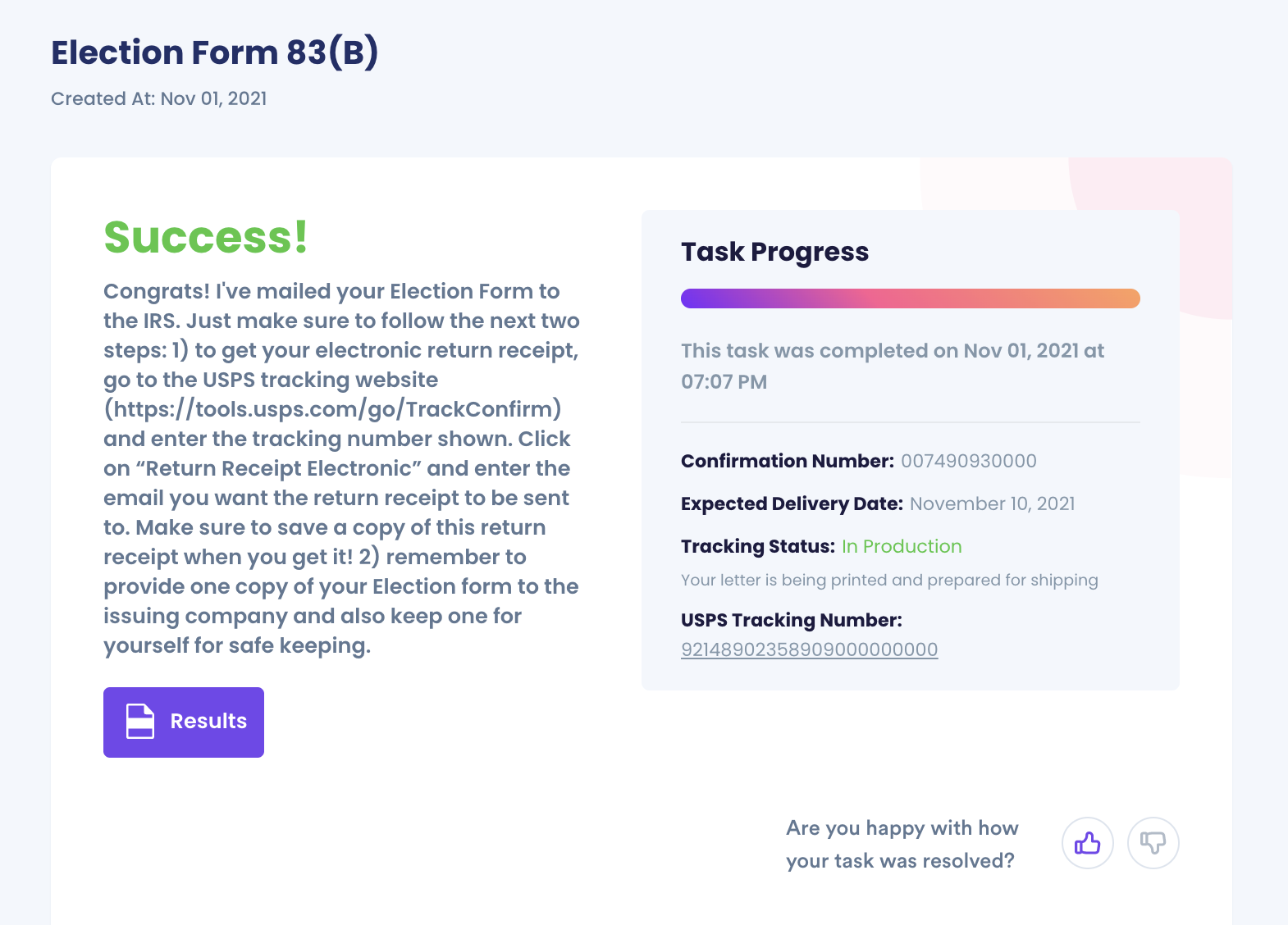Restricted Stock Units (RSUs) And 83(b) Elections
Do you have stock options that you'd like to exercise early? If so, filing the election is the only way to make your exercise official to the IRS. But don't worry if you have no clue what an 83(b) election is or how to file one trouble-free. We've prepared this short yet comprehensive guide for that cause. Let's get to it!
What Is an 83(b) Election Form?
An 83(b) election is a short, one-page document or letter to the Internal Revenue Service (IRS), letting them know that you'd like to get taxed on your equity, e.g., restricted stock units (RSUs), on the day they were granted rather than when they vest.
The idea is to save substantially on taxes by paying now when the value of your RSU is still relatively low instead of waiting until the time the equity vests, where you'll get taxed based on its present fair market value.
Let' face it, though; filing an 83(b) election can be a tedious and time-consuming process for employers and employees, considering the strict IRS instructions that guide the process. But as you keep scrolling, you'll discover step-by-step procedures to help eliminate the hassle of filling out the form. We'll also show you how to complete the process in a few clicks with DoNotPay. In the meantime, let's understand the benefits of an 83(b) election.
What Are the Benefits of an 83(b) Election?
The primary benefit of an 83(b) election is that it gives you access to any profits that come from your RSUs before they vest completely. If you fail to make an 83 election when you should, you may not gain anything when the stock options finally vest. That means paying tax on the total value of those shares, increasing your tax bill exponentially.
So the bottom line is, a well-timed 83(b) election ensures that you don't pay more than necessary because you'll continue receiving additional profit potentials. But that's not all; an 83(b) election can also benefit the company whose employees or co-founders have RSUs. How so? Here are a few ways:
- No more administrative burden of determining the shares' value every time more shares vest.
- There's no longer the need for tax reporting or employment tax obligations as for vesting your incentive stock option, ISO.
- It marks the beginning of the capital gain period for all shares under the 83(b) election. This is hyper crucial because holding shares for more than a year means you may qualify for lower long-term capital gain tax rates. Even better, if you hold your shares for more than five years, any gain will more likely get excluded from your taxable income, as stipulated under Section 1202 of the Tax Code.
How Long Do You Have to Make an 83(b) Election?
Essentially, you have 30 days to file an 83(b) election with the IRS, effective from the day you receive your restricted shares. That means completing the form, attaching a cover letter, and sending it to the IRS within a 1-month duration. But don't wait until the eleventh hour because timely filing can mean the difference between saving substantially on taxes or incurring a colossal tax bill down the road.
Even worse, forgetting or filing your 83(b) election late causes more financial troubles, as you'll pay income tax on the recognized income when the RSU vests, as well as the long-term capital gains tax at the time of sale. Good news: DoNotPay is here to prevent that from happening by automating the 83(b) filing process.
How Do You Fill Out an 83(b) Election Form?
There are two primary ways to fill out the form: you can take the DIY route or leverage a digital solution like DoNotPay, which is more convenient and faster. If you decide to do it yourself, below is a step-by-step guide to make the process a little less tedious, complex, and painful:
-
Find an 83(b) Election Template Online
We recommend retrieving the template from the SEC website.
-
Fill Out the Form
After downloading the template, it's time to populate it. Or, if you have a busy schedule, you can ask your equity strategist or accountant to do it for you. Finish by signing it off.
-
Make Copies of the Signed Form
This is important; make at least three copies of the signed form and one copy of the IRS cover letter.
-
Send to IRS
The fourth step is where you submit the original signed form and the cover letter to the IRS. We recommend verifying the address, sending via certified mail, and requesting a return receipt for surety.
N/B: You also want to send a copy of the completed form to your company and retain the remaining one for permanent personal records.
How Do You File an 83(b) Election Using DoNotPay?
As mentioned above, filing the election form digitally is more convenient and time-saving than doing it yourself. And there's no better tool to execute that task than DoNotPay. So, how can you leverage DoNotPay's 83(b) election electronic filing technology to file faster, more conveniently, and hassle-free? Simple! You only need to complete these easy three steps:
- Enter the email address of the employee/shareholder you want to grant shares to.

- Upload a copy of the Restricted Stock Purchase Agreement.

- And that's it! We'll email the grantee with a special link so they can access the DoNotPay 83(B) Election Form Filing Product and file their forms automatically. You'll be able to see the completed task on your dashboard, and the grantee will receive a tracking number to track the status of their shipment as well.

Why Use DoNotPay to File an 83(b) Election Form?
Ever since the IRS decided to accept electronic signatures for 83(b) election forms, DoNotPay has been helping users file their forms digitally, so you don't have to endure the frustrations of doing it manually. Here's what our automated election form filing product offers:
| Speed | The hours you'd have spent sourcing, filling out, and submitting the form get reduced to minutes, if not seconds, with DoNotPay. |
| Ease and Convenience | You don't have to struggle to fill out tedious forms or keep track of all the steps involved in solving your problem. |
| Success-Guaranteed | You can rest easy knowing we'll make the best submission for you. |
What Else Can DoNotPay Do?
Filing an 83(b) election is just one of the many things that DoNotPay can help you with. Other legal-related matters available in our vast list of services include:
- Business loan request
- Online fax
- Filing a complaint against any company
- Copyright protection
- Breach of contract
And that's it! If you have additional questions concerning filing an election, don't hesitate to today!


